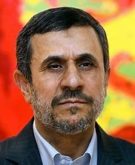VOA — Tehran has warned Islamabad that it would hit bases inside Pakistan if the government does not confront Sunni militants who carry out cross-border attacks.
An anti-Iran Sunni Muslim militant group called Jaish-ul-Adl (JA), which calls itself the Army of Justice, took credit for an April 26 ambush in which 10 border guards were killed in Iran’s southeastern province of Sistan-Baluchistan. Tehran said the militants crossed into Iran from neighboring Baluchistan province in Pakistan.
Here’s what is known about the group:
What is Jaish-ul-Adl?
Jaish-ul-Adl — known as JA — is a Sunni insurgent group in Iran’s southeastern Sistan-Baluchistan province and fights Iranian security forces in the region.
The group was founded in April 2012 by Abdul Rahim Mollazehi, a Baluch militant, after the Iranian regime captured and executed Abdul Malek Rigi, former leader of the insurgent Jundullah group that claimed to be fighting for “equal rights of Sunni Muslims in Iran,” in June 2010.
JA was first comprised of members of a weakened Jundullah. JA’s first attack killed at least 10 members of Iran’s elite Islamic Revolutionary Forces (IRGC), days after the group formed.
Where is JA based?
JA operates primarily in the Sistan-Baluchistan province, but it also operates from bases in neighboring Baluchistan province in Pakistan where it gets support from local Baluch tribes.
“Most militant groups in Baluchistan are based on tribal connections,” said Abdullah Haqyar, who told VOA he is a former JA member. “These tribes have a tradition of helping and harboring members of allied tribes. Many tribes in Pakistani Baluchistan support their oppressed brothers in Iran.”
Local tribes control large swaths of the region and neither Iranian nor Pakistani security forces have a permanent presence in the region.
What does JA fight for?
The group describes itself as a “political-military” movement and claims to be fighting to achieve justice for the “oppressed Sunni Baluch” people.
Sistan-Baluchistan, which is home to many Sunni Baluch and Sistani Persians, is one of the most underdeveloped and poverty-stricken areas in the country. The minority Sunnis in Iran are highly underprivileged and have been deprived of political and economic opportunities.
According to Iranian lawmaker Hamid Reza Pashang, over 70 percent of the province population lives in “absolute poverty.”
JA says it must fight the Shi’ite-dominated regime in Iran because it persecutes the Sunni minority.
“Since this regime only uses the language of force and humiliation, we have no other means but to fight back,” JA said in a video statement in late 2012.
JA also said it opposes Iran’s military involvement in Syria where elite Iranian forces and the Lebanese Shi’ite militia Hezbollah are supporting the government of Syrian President Bashar al-Assad in Syria’s civil war.
Who are JA fighters?
According to a statement on the group’s website, JA is “composed of young Iranian Sunnis who have come together to defend the oppressed to the divine command.”
The exact number of JA members is unknown, but according to some reports, it has over 500 members and followers. The number of active fighters is said to be over 100. Some of its fighters are seasonal, including some from Pakistan, who are called upon for occasional operations against Iranian security forces.
How many attacks has JA conducted?
Since 2012, JA has claimed responsibility for conducting more than 200 attacks and killing and abducting more than 150 Iranian security forces members.
In its attacks, JA has taken credit for shooting down a military helicopter and destroying dozens of army vehicles. Iranian authorities have confirmed some of the JA claims.
In addition to the April 26 ambush, which killed 10 border guards, JA claimed responsibility for attacks that killed eight border guards in April 2015 and 14 in October 2013 near the Pakistani border.
 Shabtabnews In this dark night, I have lost my way – Arise from a corner, oh you the star of guidance.
Shabtabnews In this dark night, I have lost my way – Arise from a corner, oh you the star of guidance.


